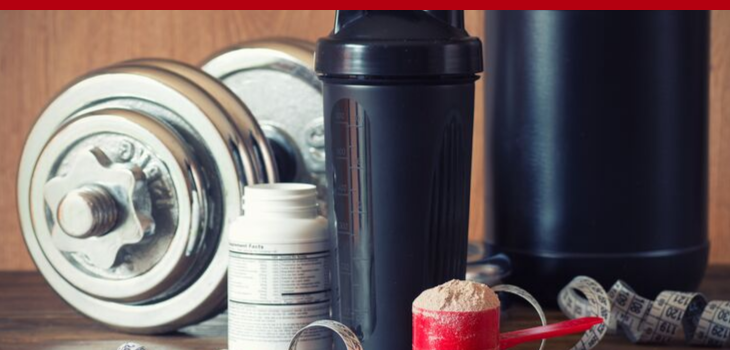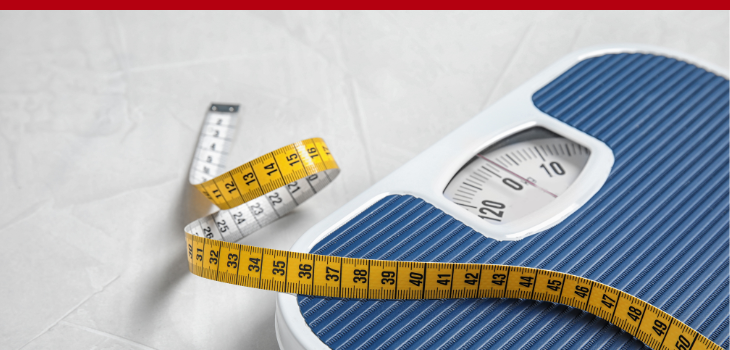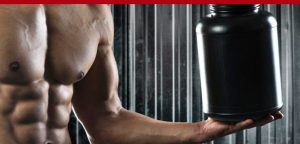(Subscribe to the Podcast Here)
(Watch This Video Training Here)
You’re training hard, eating well and you’re looking for that edge to maximize your performance in the gym and take your gains to the next level, this episode is for you. In this episode, leading fitness trainer and health coach Ted explains why you should not trust the supplement industry, the 5 muscle growth and exercise performance supplements that actually work and 4 that are a complete waste of your money. Listen Now!
DID YOU KNOW?
Since 1994, the Dietary Supplement Health and Education Act (DSHEA) has been poorly enforced, allowing supplement companies to run wild. As long as they made no specific medical claims, it was essentially legal for supplement companies to spread misinformation and unfounded claims.
For example, glutamine, a nonessential amino acid, is heavily promoted as a muscle builder.
A common marketing claim is that consuming glutamine increases muscle mass by 300%.
Take a second to flex your biceps. Now imagine them 300% bigger. That’d put many professional bodybuilders to shame! That’s what the supplement companies are promising you.
The truth is, research did show glutamine tripled the size of muscle cells — if you injected it directly into cells in a petri dish! What they left out is that it doesn’t happen in your body in the same way.
First, you’re not injecting glutamine, and second, your small intestines absorb most of it!
So based on a technicality, supplement companies push glutamine as a muscle builder … to the tune of over $125,000,000 a year in glutamine sales!
Supplement companies also hide behind “proprietary blends,” where they don’t tell you how much of each ingredient is inside.
The problem here is that you don’t know if you’re getting an effective dose of each of the ingredients. The reality is that anyone with the right know-how can look up studies to see what dose has proven to be effective. So there’s no reason to use proprietary formulas.
It doesn’t necessarily mean that a supplement company is not trustworthy if they use proprietary blends. But it does call into question WHY they’re choosing to not reveal how much of each ingredient is in a supplement.
Many of these companies frequently use less of the most expensive ingredients (and add more the useless ones).
At the end of the day, supplements are big business. And not all businesses put ethics first.
WHICH SUPPLEMENTS DO YOU ACTUALLY NEED?
Instead of relying on marketing claims, you need to figure out which supplements are worth your time and which are a waste of money.
Here’s one important truth: you should take specific supplements based on your health goals.
A 60-year-old with aching joints has different needs than a 30-year-old who’s having trouble recovering from their workouts. So recommending the same supplements to them is not the right approach and a waste of money.
ARE YOU GETTING THE SUPPLEMENTS YOU ACTUALLY NEED?
Making sense of the information — and misinformation — out there can be overwhelming. There’s a
ton of conflicting information online. And most of it is pushed by people trying to sell you specific supplement brands. There’s nothing wrong with recommending supplement brands. In fact, I’ll be doing that here. It’s WHY they’re recommending specific brands that matter.
Another important thing to consider is that reading scientific research is a complex skill that requires specific education and expertise.
This is where I can help.
WHAT HEALTH GOALS DO YOU WANT TO IMPROVE?
In this guide, I’ll reveal the 5 Muscle Growth & Exercise Performance Supplements THAT WORK and the top 4 Muscle Growth & Exercise Performance Supplements to AVOID.
My goal with this supplement guide is for you to:
- Know exactly what to take, when to take it, and how much to take
- Achieve your fitness goals with the right combination of supplements
- Save hundreds of dollars by not buying useless supplements
WHAT MUSCLE GROWTH & EXERCISE PERFORMANCE SUPPLEMENTS ARE WORTH YOUR MONEY

CREATINE MONOHYDRATE
Creatine monohydrate is backed by strong evidence for both its safety and its ability to increase your strength training performance.
Supplementing creatine monohydrate increases the body’s creatine stores, which are located primarily in the skeletal muscles. Your cells use creatine to regenerate adenosine triphosphate (ATP), life’s energy currency, before they turn to burning glucose.
In short, more creatine helps your muscles squeeze out those last few reps.
How Much To Take:
Take creatine monohydrate and avoid the fancier versions. Other forms of creatine may be more expensive, but studies have not found them to be more effective.
Optimal dosing still appears to be between 5 grams per day. You can “load” with 20g/day for the first 5-7 days to help saturate your cells, but beyond that there’s no benefit to taking large amounts. Although the standard dosage for creatine monohydrate is 5 grams per day, the supplement I personally take uses half of that dosage along with a special delivery system.
There is a school of thought that believes people with more muscle mass may benefit from as much as 10 g/day, but this claim is not fully supported by the scientific evidence. When you take creatine doesn’t seem to be important so take it whenever it is convenient.
My Recommendation:
I was a little wary when I first tried it due to it being half the standard 5-gram dose per serving. But I’ve found that the delivery system they use is more effective than the 10 grams per day I was taking from another quality creatine brand.
Use Code: LEGENDARY15 to Save 25%.
WHEY PROTEIN
The protein you eat is digested into amino acids, which are then recombined as muscle fibers, among other things. Some amino acids—especially leucine—are crucial for muscle growth.
To maximize muscle growth and exercise performance, you need to consume enough protein. Whole food sources of protein are best, but if your food intake does not cover your daily protein needs, you can add a supplement. I recommend powders over bars.
But what if you are lactose intolerant or vegan? Fortunately, you can still supplement protein powders. Whey protein isolates contain very little lactose so shouldn’t cause any issues. For vegans, I recommend a blend of several different plant-based protein sources. Pea and grain blends are good choices because they resemble whey protein’s amino acid profile.
How Much To Take:
Your protein intake should be based on body weight, not on caloric intake.
- If you’re of healthy weight, active, and wish to build muscle, aim for 1.4–3.3 g/kg (0.64–1.50 g/lb).
- If you’re of healthy weight, active, and wish to lose fat, aim for 2.2–3.3 g/kg (1.00-1.50 g/lb).
- If you’re overweight or obese, aim for 1.2–1.5g/kg (0.54–0.68 g/lb).
If you want to avoid the math, simply take 1 serving of your protein shake 2-3 times per day based on your goals.
As we age, our muscles can develop a resistance to dietary proteins’ anabolic signals.
Larger doses can partially compensate for this resistance, so if you’re over forty, aim for the higher half of the above ranges — i.e., aim for 1.7–2.0 g/kg/day (0.77–0.91 g/lb/ day), including 30–40 g per meal and either before or after your workout. Before bed is another option.
Just make sure it doesn’t interfere with your sleep.
My Recommendation: Premium Option
It’s a vegetarian protein blend with 7 ingredients: Pea, Quinoa, Hemp, Coconut, Monk Fruit, Cinnamon, and Vanilla Bean. This is critical as you need a blend to ensure you are getting ALL of the essential amino acids your body requires and craves for functioning on all cylinders.
It contains live enzymes to help ensure it is absorbed in your body and doesn’t end up literally going down the toilet. And the taste is great.
Use Code: TED20 to save 20% on your first order.
My Recommendation: Budget Option
Dymatize ISO 100 Hydrolyzed Whey Protein Powder Isolate
What I like about this brand is that you get 25 grams of high-quality protein from 100% whey protein isolate. Also, if you’re on a budget, it’s a good option.
BETA-ALANINE
When ingested, the nonessential amino acid beta-alanine binds with the essential amino acid histidine to create carnosine. Carnosine has anti-aging and antioxidant properties; it also buffers lactic acid during exercise, which delays muscle fatigue.
In short, beta-alanine supplementation can improve endurance.
But there’s a catch. Beta-alanine only helps with intense exercise. Imagine running a fast lap around the track or doing a set of high-rep squats that feels like the longest sixty-seconds of your life.
Beta-alanine supplementation will mostly benefit athletes who exercise hard in the 1–4-minute range.
How Much To Take:
Take 4-6 g per day. If you have a long workout planned, aim for the higher end of that range. It is better to take this supplement even on rest days, but skipping one or two days a week is not a major issue. While beta-alanine can be taken at any time of the day, it may be better absorbed with a meal.
Keep in mind that beta alanine can cause a tingling sensation on your skin. Although some people get concerned when this happens, it’s nothing to worry about. If you spread the dosage across several meals, this can prevent it.
My Recommendations:
Optimum Nutrition Beta-Alanine
CITRULLINE MALATE
L-Citrulline is an amino acid. It is turned into L-arginine in the kidneys after supplementation. L-arginine is then turned into Nitric oxide—which is a powerful neurotransmitter that helps blood vessels relax and also improves circulation. Although it may seem logical to take L-arginine, L-citrulline supplementation is a more effective method of increasing L-arginine levels in the body than L-arginine supplementation. Citrulline is an amino acid and malate (or malic acid) is a naturally occurring compound that contributes to the sour flavor of apples and other fruit.
Similar to beta-alanine, citrulline malate it buffers against metabolic stress and allows you to have better endurance. It works by increasing arginine serum levels and the recycling of metabolic waste products.
Supplementation results in reduced fatigue and improved endurance for both aerobic and prolonged anaerobic exercise. There isn’t enough evidence to support the claim that L-citrulline supplementation improves power output during exercise but there are several studies showing citrulline mallate improves workout performance. The lone study using citrulline acutely pre-workout noted a 40% reduction in muscle soreness the following two days after the workout.
That said, if you’re over 40, I recommend using L-cirtulline instead of citrulline mallate due to it’s circulation benefits.
How Much To Take:
If you choose citrulline mallate, then take 8,000 -10,000 mg about an hour before exercise for performance enhancing effects.
If you choose L-citrulline for it’s circulation benefits, then take 6 grams per day.
My Recommendations:
Bulk Supplements Citrulline Malate
TART CHERRY JUICE
Tart cherry juice is less about performance and more about recovering from sports and/or exercise. The recovery boosting benefits of tart cherry juice have to do with its anti-inflammatory properties. Since cherry juice has a higher concentration of anti-inflammatory nutrients than the whole fruit, the research has focused on the juice.
A 2010 study published in the Scandinavian Journal of Medicine and Science In Sport found that marathon runners that drank tart cherry juice 5 days before, the day of and for 48 hours following a Marathon run recovered significantly faster than the placebo group.
I’ve used tart cherry juice on and off for years and I can tell you from personal experience that it’s powerful for recovery and decreasing inflammation. Your muscles and joints will feel better faster from a tough workout. And it tastes good too.
How Much To Take:
Most of the studies I looked at used 1oz (30mL) of tart cherry juice concentrate twice a day. I would start with 1oz to see if you notice a difference. Then try 2oz per day—one in the morning and one at night—to see if you notice more benefits. It’s important to understand that tart cherry juice also contains naturally occurring melatonin. So it’s important to take the right dosage to avoid a melatonin “hang over” from taking too much.
My Recommendation:
FruitFast Tart Cherry Juice Concentrate
WHAT MUSCLE GROWTH & EXERCISE PERFORMANCE SUPPLEMENTS YOU SHOULD AVOID
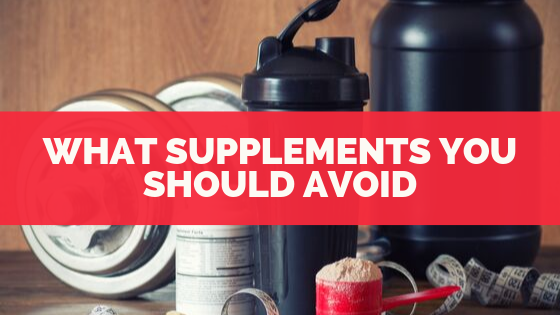
It’s extremely difficult, if not impossible from a consumer’s perspective to know for sure what’s in their products. If you’re going to buy them, definitely do research on and that’s why we created this supplement guide.
These supplements are either potentially dangerous or simply ineffective, marketing claims notwithstanding.
Do not add them to your stack. At best, they’ll be a waste of money; at worst, they can cause you harm.
BCAAs
Branched-chain amino acids (BCAAs) are three of the nine amino acids essential to humans. Since you ingest BCAAs each time you ingest protein, supplementing BCAAs in isolation is mostly redundant. For example, 100 g of a whey protein concentrate can contain 11 g of leucine, 6 g of isoleucine, and 6 g of valine, so 23 g of BCAAs. The numbers vary between supplements, bu the point is that it’s just 100% unnecessary to take BCAAs.
Many studies have investigated the effects of BCAA supplementation on exercise, and these effects proved minimal. If you’re going to supplement with amino acids for your workout, taking all 9 essential amino acids (EAAs) are more important. However, you can get what you need from whole food sources of protein or from a protein powder supplement.
HMB
Beta-hydroxy beta-methylbutyrate (HMB) is a product of the amino acid leucine. It’s promoted as a muscle building supplement by supplement companies but research is conflicting. The best evidence shows that just getting enough protein works just as well (if no better) than taking HMB.
That said, situations whereby HMB supplementation may theoretically prove useful include periods of caloric restriction/dieting, rehabilitation from injury, periods of extreme inactivity, or long, sustained exercise such as military missions.
By reducing muscle damage, HMB may allow for faster recovery times both during and between workouts, leading to faster increases in performance. But again, if you’re eating enough protein (which can be done on a calorie-restricted diet) then there doesn’t seem to be any evidence showing that HMB is worth your time and money.
In my opinion, if you want to take a supplement for exercise recovery, I’d take Tart Cherry Juice.
GLUTAMINE
Glutamine is an amino acid that plays an important role in muscle cells. In fact, in vitro studies (studies done in a test tube or a petri dish) require glutamine to keep cells alive. When glutamine is added to muscle cells in vitro, protein synthesis increases.
The problem is getting glutamine to muscle cells in the first place. After you ingest glutamine, it doesn’t reach your muscle directly. Instead, it is taken up by the small intestine, then transported to the liver, which releases it to other tissues in the body on an as-needed basis.
Therefore, while glutamine supplementation could benefit the digestive system and the liver, it will not cause an increase in muscle growth. So unless you’re experiencing digestive issues, save your money.
TESTOSTERONE BOOSTERS
There isn’t much research on humans to support taking testosterone booster supplements. Studies are seldom replicated, and when replicated seldom draw the same conclusions. Furthermore, even if a supplement can influence your body into producing more testosterone, it can only do so within your physiological limits — so you shouldn’t expect effects like taking TRT or other steroid hormones.
Some supplements claiming to boost testosterone — including maca, fenugreek, and Tribulus terrestris — actually enhance libido. so theoretically you might have higher testosterone levels because you feel more confident due to having a higher libido. But not because any of these supplements directly raises testosterone levels.
And if you wanted to increase your libido, 7-9 hours of sleep, effective stress management, and regular exercise are better choices. As far as supplements go, taking L-citrulline has a proven effect on sexual performance due to increased blood flow.
ASSEMBLING YOUR STACK
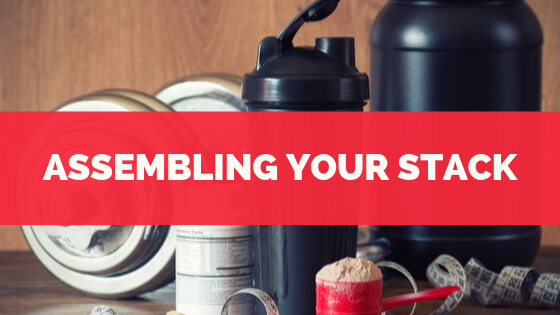
The core supplements in this stack are creatine monohydrate, whey protein, beta-alanine and citrulline-malate/L-citrulline.
If you take creatine, take 5 g when it’s convenient as timing doesn’t seem to matter. If you beta-alanine, take it every day a a time when it’s convenient. Again, timing doesn’t seem to matter here. If you take citrulline mallate, take it 1 hour before your workout. If you take L-citrulline, you need to take 3-6 g every day.
Make sure you eat enough protein throughout the day (1.4–2.0 g per kilogram of body weight, so 0.64–0.91 g/lb/day) and feel free to supplement with protein powders to make it easier to hit your goal.
These core supplements are what I recommend for most people; their efficacy and safety are backed by a significant body of scientific evidence. I re commend taking them for a couple of weeks before you consider making any changes.
INCORPORATING OPTIONS

For weightlifters (muscle growth and power)
Instead, I prefer this nootropic stack. Although it has limited scienfitific evidence to support it, I’ve noticed a big boost in focus and memory when I take it. And it doesn’t give you the jitters or disrupt your sleep like caffeine might.
Acetyl-L-Carnitine (ALCAR). Many users report a noticeable increase in energy and concentration and research has even shown ALCAR to be neuroprotective. To help with sports performance, take ALCAR once in the morning and once before training, or in the mid-afternoon on days when you do not train. It’s best to start out with just 500mg twice per day and increase from there as necessary.
Alpha-Glycerophosphocholine (Alpha-GPC). This is a nootropic and well-known cholinergic compound – a collective group of compounds that increase the amount of acetylcholine or choline in the brain. Research has shown up to a 14% improvement in power output following a dosage of Alpha-GPC. Aside from this, choline has been closely linked to improved memory, protection against age related declines in brain function and many people report an increase in energy and focus as well. Most studies show 600mg to be an effective dose. Start with a dose. try starting with 300mg every day then adding an additional 300 mg to gauge the effects on your mental and physical performance.
The last supplement I’d recommend for people who’re training hard is ashwaganda. Although it’s a medicinal herb that’s been used in Ayurvedic medicine for centuries, recent scientific research has shown some promising benefits for workout performance. Try taking 600 mg of the ashwaganda KSM-66 extract about one hour before exercise.
In add-on to exercise performance, ashwaganda has been shown to decrease stress levels, improve sleep, decrease arthritis symptoms and more.
For people undergoing intense training, such as MMA/BJJ training, HIIT, and other mixed energy sports.
In addition to the core supplements, take 600 mg of ashwaganda KSM-66 extract about one hour before exercise. Time your 4-6g of beta-alanine and 8-10g of citrulline mallate an hour before exercise as well.
Other options
If you work out in a fasted state, 20–40 g of protein within the 2 hours following your workout will help preserve muscle mass. If you fail to get enough protein during the day. People with a lot of muscle mass can increase the creatine dose from 5 to 10 g.
If you decide to take either the 6 g of citrulline (or 8-10 g of citrulline malate), then consider adding glutathione as well. Gutathione may slow down the rate of nitric oxide breakdown in the bloodstream. So adding 200 mg of glutathione to your citrulline might prove to have synergistic effects.
FAQ
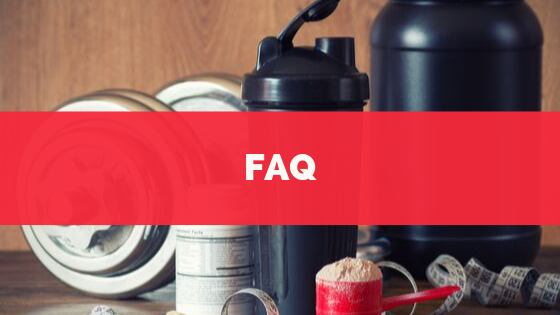
1) Can I add to my stack a supplement not covered in this guide?
Supplement your current stack for a few weeks before attempting any change. Talk to your doctor and research each potential new addition in advance. Check for known negative interactions with other supplements in your current stack, but also for synergies. If two supplements are synergistic or additive in their effects, you might want to use lower doses for each.
2) Can I modify the recommended doses?
If a supplement has a recommended dosage range, stay within that range. If
a supplement has a precise recommended dose, stay within 10% of that dose. Taking more than recommended could be counterproductive or even dangerous.
PRECAUTIONS & TROUBLESHOOTING

Stack components are seldom studied together. The safest way to add supplements to your daily routine is one at a time, at least a couple of weeks apart, to better assess the effects (and side effects) of each new addition. Start at half the regular dose for a week, then slowly increase to the regular dose if you are not experiencing the desired effects.
Be aware that core-intensive exercises, supplementing on an empty stomach, dietary protein, and too much carbohydrate (especially fructose) can all increase the risk of gastrointestinal upset. Any stack that prevents you from maximally exerting yourself because of nausea or stomach pain is counterproductive.
To reduce the risk of gastrointestinal upset, take your supplements with enough water and (if possible) a small meal with a little fat and a higher-than-average carbohydrate content. You could also let more time pass between the moment when you take your supplements and the beginning of your workout.
Related Post: The Ultimate Supplement Guide For Fat Loss
Are You Still Confused About What Supplements Work And What To Avoid?
We know that supplements are big business. But it’s not like you can trust supplement companies. They have one goal: to convince you to buy their supplements.
Each month, we get hundreds of messages and emails from frustrated listeners. They’re sick of misinformation and harmful marketing hype. They just want to know what’s a waste of money and what works. They’re looking for guidance on the right supplements to help them achieve their specific health goals.
So, Ted combined his 20 years of experience as a fitness trainer and health coach to help you figure out exactly what to take.
The Ultimate Supplement Guides are the result. We’ve taken our decades of knowledge and experience and summed it up in a series of practical guides, with each focused on a specific health goal – burning fat, building muscle, sleep, memory and focus, joints, and much more.
>>Click Here To Get Instant Access now!



